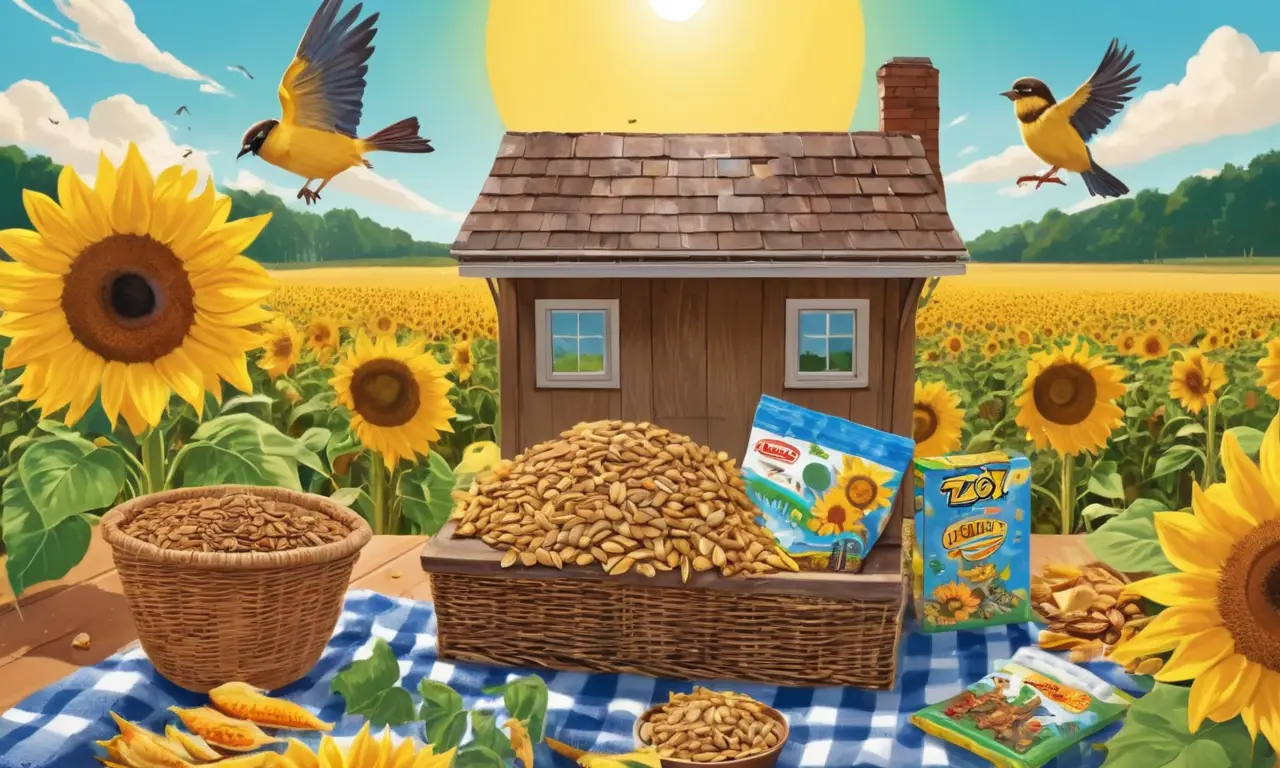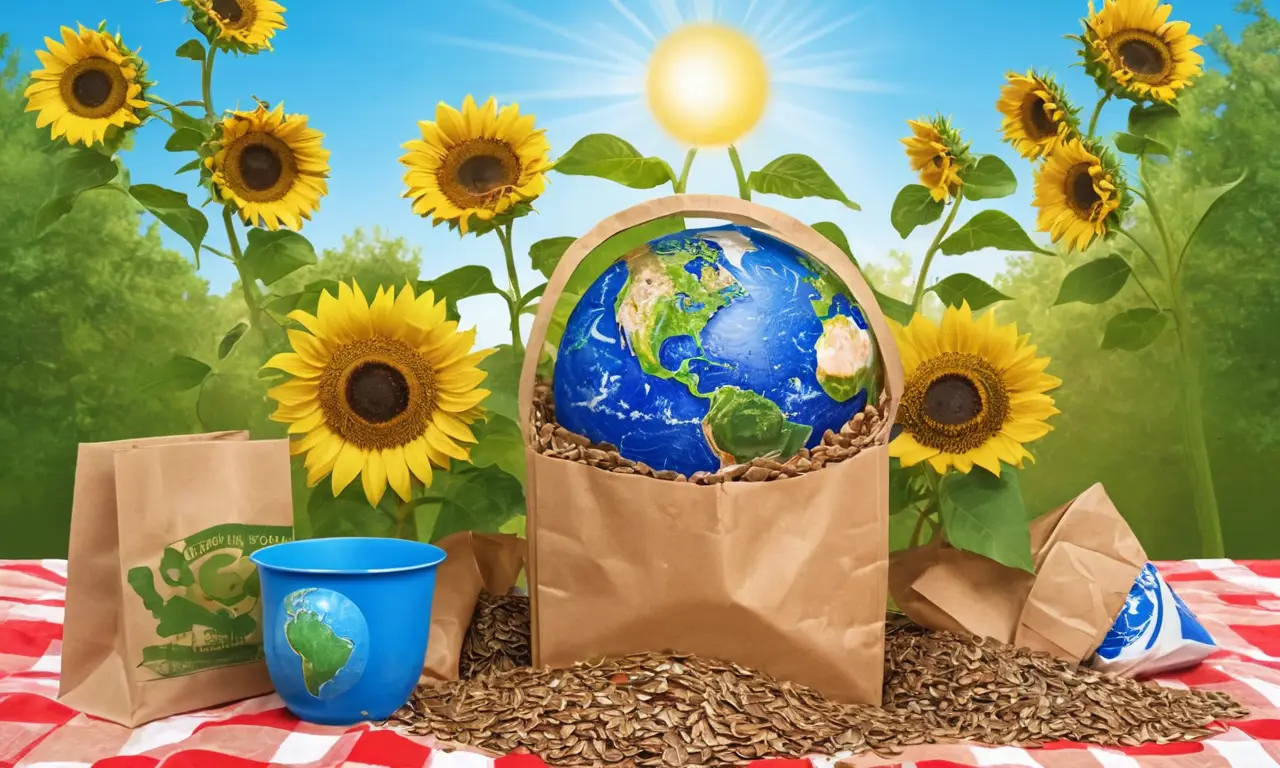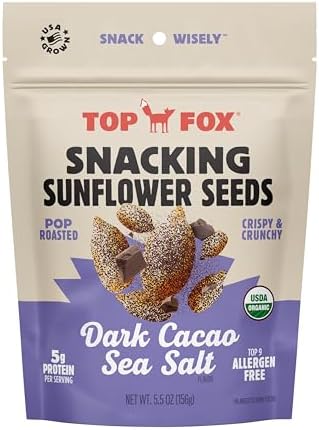Sunflower seeds have become a popular snack choice worldwide, enjoyed for their nutty flavor and nutritional benefits. But beyond their deliciousness, sunflower seeds offer a sustainable and eco-friendly alternative to many other snacks on the market. This article delves into the reasons why sunflower seeds are a responsible and environmentally conscious choice, exploring their biodegradable nature, sustainable production practices, and minimal environmental impact.
Sunflower Seeds Benefits
Sunflower seeds are packed with essential nutrients that contribute to overall health and well-being. They are an excellent source of healthy fats, including omega-6 fatty acids, which support heart health and brain function. Additionally, sunflower seeds are rich in vitamin E, a powerful antioxidant that protects cells from damage. They also provide significant amounts of protein, fiber, and minerals like magnesium, selenium, and copper. Incorporating sunflower seeds into your diet can boost energy levels, improve digestion, and contribute to a healthy immune system.
Sunflower seeds offer versatility in culinary applications. They can be enjoyed raw as a crunchy snack, added to trail mixes for extra nutrition, or incorporated into baked goods, salads, and stir-fries for a nutty flavor and satisfying texture. Their mild taste pairs well with various ingredients, making them a versatile addition to both sweet and savory dishes.
Biodegradable Nature

One of the most significant advantages of sunflower seeds is their biodegradable nature. Both the seeds themselves and their shells decompose naturally over time, enriching the soil and returning nutrients to the environment. This natural decomposition process reduces waste and minimizes the strain on landfills. When sunflower seed shells are composted, they break down into valuable organic matter that improves soil fertility and supports plant growth.
The biodegradability of sunflower seeds stems from their composition of organic materials like carbohydrates, proteins, and fats. These components are readily broken down by microorganisms in the soil, releasing nutrients back into the ecosystem. This natural cycle ensures that sunflower seeds leave a minimal environmental footprint compared to many other snack options that rely on non-biodegradable packaging or contribute to plastic pollution.
Sustainable Snack Choice
The sustainable nature of sunflower seeds extends beyond their biodegradability. They are cultivated using environmentally friendly practices that minimize water usage and promote soil health. Sunflower plants require relatively little water compared to other crops, making them a drought-tolerant option. Their deep root systems help prevent erosion and improve soil structure.
Furthermore, sunflower cultivation often involves crop rotation, which helps maintain soil fertility and reduce the need for synthetic fertilizers. By choosing sunflower seeds, consumers can support sustainable agricultural practices that prioritize environmental conservation.
Eco-Friendly Packaging

While the sunflower seeds themselves are biodegradable, it’s crucial to consider the packaging they come in. Fortunately, many brands now offer sunflower seeds in eco-friendly packaging options. These include:
Compostable Bags
Compostable bags are made from plant-based materials that decompose naturally in composting facilities or home compost bins.
Recycled Paper Packaging
Recycled paper packaging reduces the demand for virgin paper and minimizes deforestation. Look for packaging made from post-consumer recycled content.
Reusable Containers
Opting for reusable containers to store sunflower seeds can significantly reduce waste. Glass jars or metal tins are durable and can be washed and reused multiple times.
Environmental Impact
Choosing sunflower seeds as a snack choice has a minimal environmental impact compared to other options. Their biodegradable nature, sustainable cultivation practices, and potential for eco-friendly packaging contribute to their overall sustainability. By reducing reliance on non-biodegradable snacks and supporting brands that prioritize environmental responsibility, consumers can make a positive difference.
Conclusion
Sunflower seeds offer a delicious and nutritious snack choice that is also environmentally friendly. Their biodegradable nature, sustainable production practices, and potential for eco-friendly packaging make them a responsible and conscious option. By choosing sunflower seeds, you contribute to reducing waste, supporting sustainable agriculture, and minimizing your environmental footprint. Embrace the nutty goodness of sunflower seeds and enjoy a guilt-free snack that benefits both your health and the planet.



